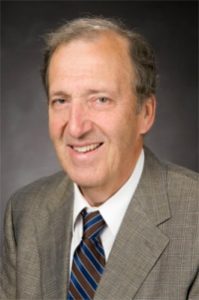
Prof David Hillman
Respiratory and sleep physicians are being urged to have their say in a new national inquiry into sleep health.
One in three Australians are believed to get inadequate sleep, something which is estimated to have cost the health system approximately $1.8 billion last year according to Deloitte Access Economics.
In response, the Australasian Sleep Association and the Sleep Health Foundation have been advocating for sleep health to be placed on the national agenda.
And it appears their voices have been heard, with the House of Representatives Standing Committee on Health, Aged Care and Sport announcing in September it will launch an Inquiry into Sleep Health Awareness.
The inquiry will examine the causes, economic and social costs, and treatment of inadequate sleep and sleep disorders.
Also included in the inquiry’s terms of reference are the education and training available to specialists and GPs, latest research into sleep health and the impact of poor sleep on workers and workplaces.
Professor David Hillman, Deputy Chair of the Sleep Health Foundation, welcomed the investigation.
“We have been quite keen to secure this inquiry it’s really a matter of handing the issue over to the community,” he told the limbic.
“We have been advocating for sleep health issues for a long time. It’s a big issue of crisis proportion and it requires a coordinated national approach.”
Clinical sleep disorders only account for about one third of the cases of inadequate sleep in Australia, said Professor Hillman, a sleep physician at the Department of Pulmonary Physiology and Sleep Medicine at Sir Charles Gairdner Hospital, Perth.
The remainder are driven by a range of life and lifestyle-related factors, he said, with Australians now facing more intense work, economic and family pressures and the omnipresent lure of social media and online entertainment.
“What we hope will emerge from this inquiry is a will to take this on as an issue community wide, probably through public education.”
He said he believed sleep physicians were well-placed to spearhead the push, much as the medical community had been at the forefront of public health campaigns to tackle smoking or mandatory seatbelt use, and he was optimistic about the outcome.
“I think to some extent we are duty bound to do this, we see the manifestations of these problems in our patients in many ways,” he said.
“When we put our mind to it our country solves these sorts of problems.”
Submissions close 18 October.